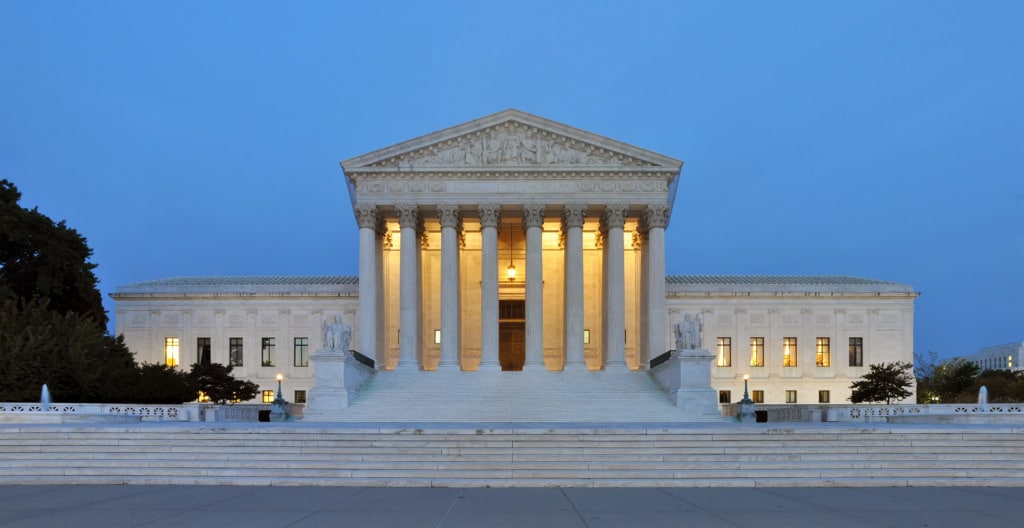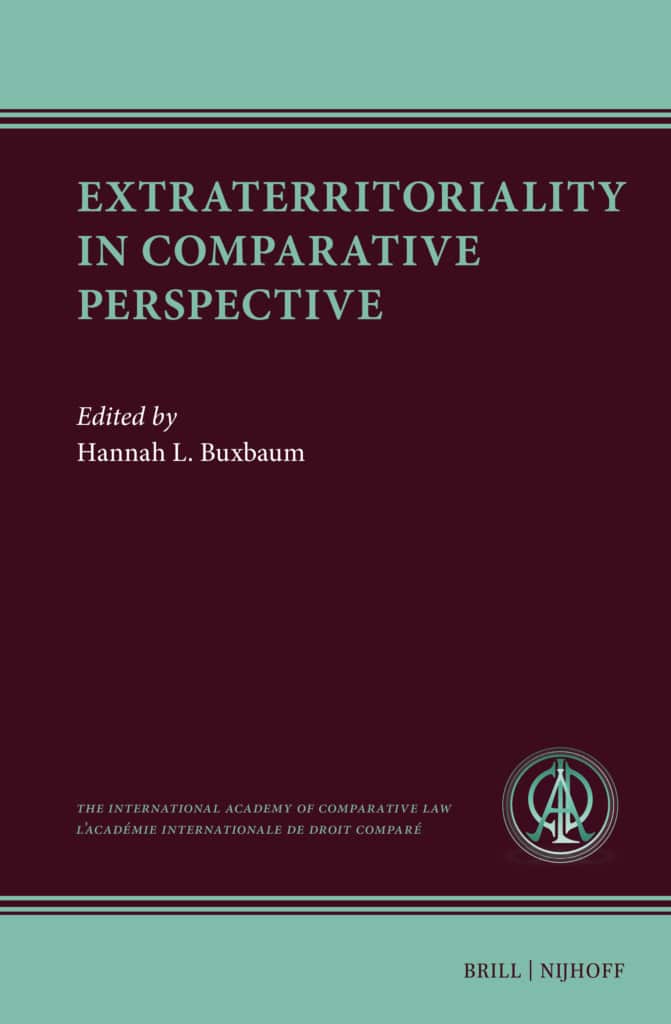Supreme Court Decides Fuld v. PLO
The Supreme Court today unanimously reversed the Second Circuit in Fuld v. Palestine Liberation Organization, holding that the personal jurisdiction provisions of the Promoting Security and Justice for Victims of Terrorism Act (PSJVTA) do not violate the Fifth Amendment’s Due Process Clause. Chief Justice Roberts wrote the opinion, which was joined by Justices Alito, Sotomayor,…
Continue ReadingZach Clopton Named Interim Dean of Northwestern
We are delighted to share that TLB Editor Zach Clopton has been named the interim dean of Northwestern University Pritzker School of Law. In light of his new responsibilities, Zach will be stepping away from his editorial duties at TLB. We have pasted below some of his “greatest hits” to highlight the breadth and depth…
Continue ReadingOral Argument Recap: Fuld v. PLO
On Tuesday, the Supreme Court heard oral argument in Fuld v. Palestine Liberation Organization. The question presented is whether the Promoting Security and Justice for Victims of Terrorism Act of 2019 (PSJVTA) violates the Fifth Amendment’s Due Process Clause by declaring that the Palestine Liberation Organization (PLO) and the Palestinian Authority (PA) have consented to…
Continue ReadingInternational Law in Domestic Courts Workshop, May 23
As previously announced, the next International Law in Domestic Courts (ILDC) Workshop will be held at the George Washington University Law School on May 23. ILDC is an interest group of the American Society of International Law. Its purpose is to promote dialogue among scholars and lawyers who are interested in issues pertaining to the…
Continue ReadingDoe Run Defendants Seek Cert for Foreign Relations Abstention
A pending cert petition in Doe Run Resources v. Reid asks the Supreme Court to dismiss tort claims brought by foreign plaintiffs against a U.S. company, its subsidiaries, and various corporate officers based on foreign relations abstention. The Peruvian plaintiffs allege they were seriously harmed as children by toxic substances, including toxic levels of lead,…
Continue ReadingFirst Circuit Argument Weighs Constitutionality of TVPA
Last month, the First Circuit (Judge Lara Montecalvo, presiding, with retired Justice Stephen Breyer and Senior Judge Sandra Lynch) heard oral argument in Boniface v. Viliena. Viliena, a Haitian national who has been a legal permanent resident of the United States since 2008, is challenging a $15.5 million jury award under the Torture Victim Protection…
Continue ReadingExtraterritoriality in Comparative Perspective
Extraterritoriality has been on the outs with the Roberts Court, which has curtailed the reach of U.S. trademark, human rights, securities, and racketeering laws via the presumption against extraterritoriality. But globally, extraterritoriality may be on the rise. Countries have flexed their extraterritorial muscles to address data privacy, human rights, competition law, tax base erosion, and…
Continue ReadingCall for Papers: International Law in Domestic Courts
The next International Law in Domestic Courts (ILDC) Workshop will be held at the George Washington University on Friday, May 23, 2025. The ILDC is an interest group of the American Society of International Law. Its purpose is to promote dialogue among scholars and lawyers who are interested in issues pertaining to the application of…
Continue ReadingA Roadmap to Service by Email
Federal courts have struggled with the question of when they can authorize service by email on a defendant located in a country that belongs to the Hague Service Convention—as we have explained in many prior posts. Though the interaction between the Convention and Federal Rule of Civil Procedure 4(f) can be tricky, there are clear…
Continue ReadingHappy New Year!
TLB will be on winter break until January 7, 2025. We wish you all the best in the new year!
Continue Reading







